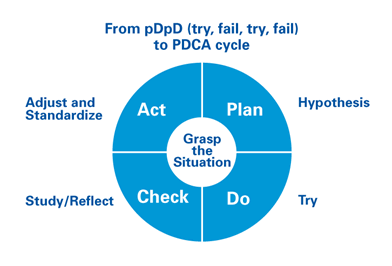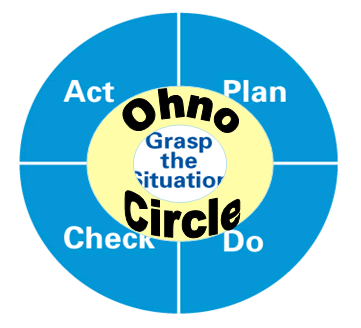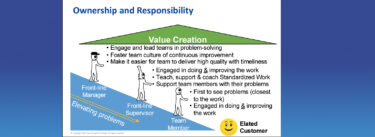Thanks to Anthony for noticing that there were only 10 principles for the CE – it would have been too funny had there been 14. (“Too bad there are not 14 principles of a CE!! – Anthony.)
As for Anthony’s incentive question (What incentive is there for someone to take a role like CE, if not for better pay?), I think the direct answer to the question is simple enough on the surface. But, a search for a “solution” quickly becomes very complex.
There is no shortage of research that shows that money is NOT the most powerful incentive. I don’t have any data at my fingertips right now (perhaps another reader can provide?), but research results I’ve seen shows monetary reward quite far down the list of effective incentives. Far more influential are such things as recognition, feelings of belongingness, or the opportunity to do work that is interesting or challenging. Sounds “soft” I know, but I believe it. We go to work eight or so hours per day, 250 or so days per year, for 30 or 40 years. Is monetary compensation enough to keep motivation up? I think CE’s get plenty of “reward” from the sheer challenge of leading projects through great adversity to success.
The deeper question is whether Toyota’s exemplary system design, the CE being case in point, can provide lessons for other companies. It’s worth noting two more things regarding all this.
Technical Skills and Social Skills – Each Equally Important (!)
The challenges to establishing the CE way of working are two-fold (more, really, but these two in addition to all the usual challenges associated with fundamental change in the way we work). The important takeaway from Hasegawa’s list of characteristics of successful CEs was the need to possess a set of equally important technical and social skills. Let me repeat, the technical and social skills are equally important. Not an easy balance for an individual to attain. But, the real challenge in implementing the CE system doesn’t end there. The bigger challenge is two-fold:
- Finding or/and developing individuals with that critical combination of technical AND social (including business) skills.
- Achieving recognition among your functional leaders about both the role of the CE and their own role:
- The role of the CE is to provide the vision for the product, the vision for the company on behalf of the customer,
- The role of the functional manager is first to make the CE (the owner of the destiny of the product and customer) successful,
- Their role to create a work-class function must not preclude or interfere with their role of supporting the CE.
Engineering Chief Engineers
As I have seen organizations attempt and struggle with the CE concept, they have tended to focus on the first of those two, finding or developing individuals who could successfully possess the right set of skills. This is admittedly a formidable task. Toyota figures it takes 15 to 20 years to develop the full range of necessary skills. (By the way, it’s good news that since the Toyota Technical Center USA has been conducting substantive design work in North America for close to 20 years, Americans are now being given this role).
But, my experience shows that the second problem is actually the most difficult to overcome. You could call this organizational resistance. Part of the problem is simply that it is difficult to get people to agree to what they perceive as “giving up power”. Playing together can be difficult. Especially when the rules don’t encourage it. By “rules,” I’m talking the rules of engagement as measured by functional performance, not by value stream. If my bonus, as a functional manager, is determined by targets that are purely internal to the workings of my function, I can hardly be expected to change my behavior very much to accommodate the desires of a CE.
This takes us back to a fundamental question, what can you “rely” on, upon what is your basis of authority to lead, if not the authority of your position?
Many leadership discussions would now plug in a set of characteristics or skills, not unlike those of Mr. Hasegawa from last week. While I won’t exactly disagree with the value of even ultimate necessity of those skills (such as the characteristics of servant leadership), I’d rather focus on identifying things that a person can try to do, rather than something to try to be.
I’ll suggest that the search for something simple and practical to do takes us immediately to … the gemba. After all, most of us aren’t going to be full-blown Chief Engineers. But, can the leadership styles and ways of working of the CE provide something of a roadmap for all of us?
Gemba Rules
You know the word “gemba” means real or actual place and lean practitioners use it to refer to the workplace, the place where real work takes place. (By the way, sometimes you will see genba spelled genba with an “n” – don’t be bothered by it – it can be spelled either way.)
But, it also means “reality” or even truth. That is, it’s a philosophy of empiricism. It says, let’s not fool ourselves, let’s look at the situation – each situation – objectively, logically, scientifically, if you will. To do that, you have to get out of your office, step away from your monitor and your “data”, and go observe what is really going on. Toyota calls this principle, “genchi genbutsu shugi,” meaning the “principle of the real place and real thing.”
This relates to how we try to manage. We have very smart people in management here in the US or in companies anywhere. They are so smart, they think they can figure things out and determine direction from above, far removed in time and space from the gemba. At the same time, there is now a general acceptance – almost a fad, if you will – that “command & control” is bad. Well, yes, command & control is the root of many evils. But, what is offered up as an alternative? (Managing to Learn, by the way, is my attempt to define an alternative.)
Another factor is our habitual beliefs and systems and actions around ‘measurement” (including incentive system design and bonus calculations) which continue to have us chasing our tails and focusing management time and attention on the WRONG THINGS. And I mean measurement at all levels. At the corporate level with an over-emphasis on quarterly returns, at the work level with a focus on narrow measures that lead to local optimization which HARMS horribly system optimization, and at the individual level where will still pretend that money is the primary motivator of human behavior when we know from years of research that is not the case.
Instead of “Command & Control” – What??
Gemba-based leadership:
- Not just laissez-faire – step out of the way, “it’s up to you,”
- Not just MBWA – slapping backs and offering praise,
- Not just MBO – okay, you’re empowered, get the numbers – I don’t care how you do it.
Rather, managers who say:
- My job is to develop you, so I need to hear your thinking, and develop you through coaching you on the job.
- I will give you expectations that are clear and challenging.
- I will give you a deadline.
- I will expect you to report out on everything, all the time.
- I will ask you what you need; I’ll see what you need and provide on-going support and coaching as required.
- And I will be back to check on how things are going.
So What?
I think most of you have heard stories of gemba-based training and learning such as the “Ohno circle,” grounded in the belief that you can understand everything that is important about a company from standing and observing from a good spot on the plant floor (or other front lines, creating-gemba).

As Ohno said in Toyota Production System, “Of course we value data at the gemba. But, we place greater importance on facts” (my translation). An insightful, critical distinction.
But, you know, just going to the gemba isn’t enough. How do you go to the gemba? What do you look for once you get there? What do you do?
Here’s what lean practitioners do: grasp the situation, look for facts at the gemba, as opposed to analyzing data removed from it in time and place, and go through the Deming management cycle.

Put them together …

Together, they add up to what Al Ward called “management by science at the gemba.” (See Lean Product and Process Development by Al Ward for a discussion of the distinction between “scientific management” (often a simple search for the “one best way,” an approach that isn’t very “scientific” at all) and true “management by science.”)
And, together, they provide a means of escaping the management tailspin caused by belief that position provides authority and data substitutes for grasp of the true facts of the situation.
John
John Shook
Senior Advisor
Lean Enterprise Institute






